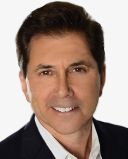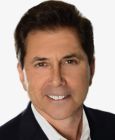
Burnout
Deciding the Future of Healthcare and Self-Care
What would the ACA mean for professional caregivers?
Posted October 8, 2012
Imagine a workforce in touch with its own wellness! What would the Affordable Care Act (ACA) mean for professionals who work with patients/clients and their caregivers? That seemed to be the question when the Supreme Court upheld the legislation. Now the question is, “IF the Accountable Care Act moves forward what will that mean?”

Imagine a workforce in touch with its own wellness!
What would the Affordable Care Act (ACA) mean for professionals who work with patients/clients and their caregivers? That seemed to be the question when the Supreme Court upheld the legislation. Now the question is, “IF the Accountable Care Act moves forward what will that mean?”
The Affordable Care Act is a federal statute signed into law in March 2010 as a part of the healthcare reform agenda of the Obama administration. Sans the political dramas and traumas, it was designed to address the three-legged dilemma we see in healthcare today: cost, access and quality. It would mean that healthcare delivery would boldly go where it has not gone before.
Before you can say “Beam me up, Scotty,” the 2014 rollout would be upon us. As we trudge the road less taken to find our place in the new order of healthcare made possible by the ACA, we will be challenged as never before. Healthcare professionals are going to be asked to do even more in the years ahead. We need to be prepared and we need to ramp up quickly. If the ACA is repealed, we may face even greater challenges.
Unfortunately, our healthcare system is already inundated with caregiver burnout and compassion fatigue as the current fee for service world drives more and more traffic to physicians’ offices and emergency rooms. Feel like you’re being asked to “change a tire on a fast moving vehicle”? You’re not alone.
The two questions I get asked most often from healthcare professionals in my national travels are “What is burnout and how does it differ from compassion fatigue?” And “When I find out which one I am challenged with, what can I and my agency do to deal with it?”
By definition, caregiver burnout is the intensive progression of your many professional first-responder stresses- physical, emotional, financial, psychological, and social - to the point that you feel totally "burned out” or physically, emotionally, and mentally exhausted.
Compassion Fatigue is the byproduct of that burned-out state of mind, exacerbated by untreated secondary traumatic stress, resultingin detachment, fatigue, emotional distress, or apathy. It is a diagnosable condition that can lead to our demise long before our patients/clients if we are not careful. Healthier workers means healthier patients

Healthier workers means healthier patients
So what can be done about it? Quite simply, you must “Take your oxygen first!” I am not being cavalier when I say that; I’m actually quite serious. There would be nothing more powerful, no better example of healthcare reform, than for our healthcare workforce to be in touch with its own wellness.
Taking care of yourself and knowing you are worth it is the first step. I suggest that you have a rotating ‘mental health’ day to relax, reflect and recharge. Making “me” time is a great way to alleviate stress. Call a friend and brainstorm a day where you can play “hooky.” Sometimes the process is as important as the product.
Find things you can do to blow off steam and have fun together as a group outside of your work environment. Massage, tai chi, Pilates and just going out to a movie and inner can make all the difference in the world. Spending time with one or more friends who understand you is a powerful thing to make routine. If you have a Caregiver SOS in your area or an activity center, run, do not walk to get there.
Remember, we do sacred work. We have clients and families who depend on us. We owe it to them and to ourselves to be the best we can possibly be. Understand that the process of progressive wellness is a marathon and not a sprint.
Will changing our mindset and that of our current health culture be easy? No, change never is. Progress may be chaotic and slow. So we have a choice: We can sit back and allow the change to happen (or not) around us OR we can look toward being part of a collaborative solution. The change begins with us!

